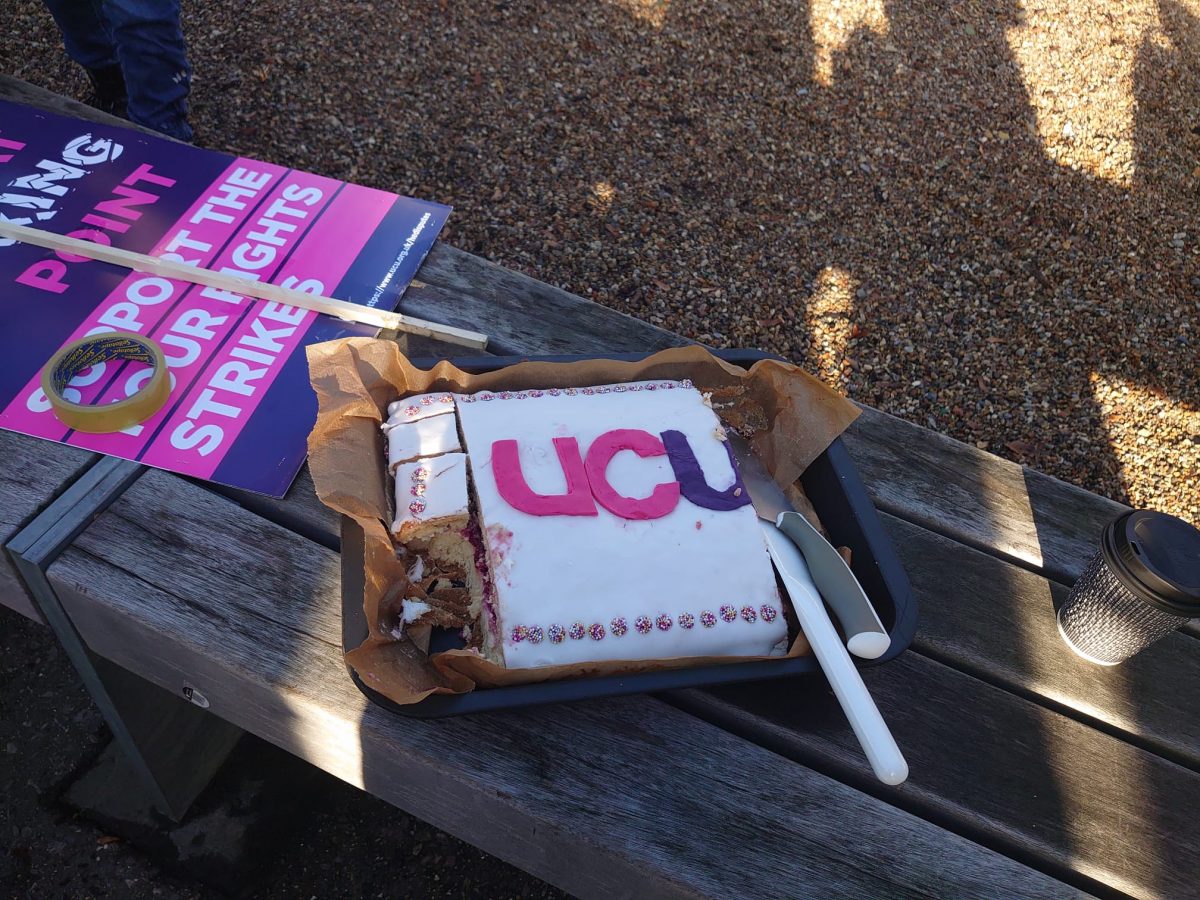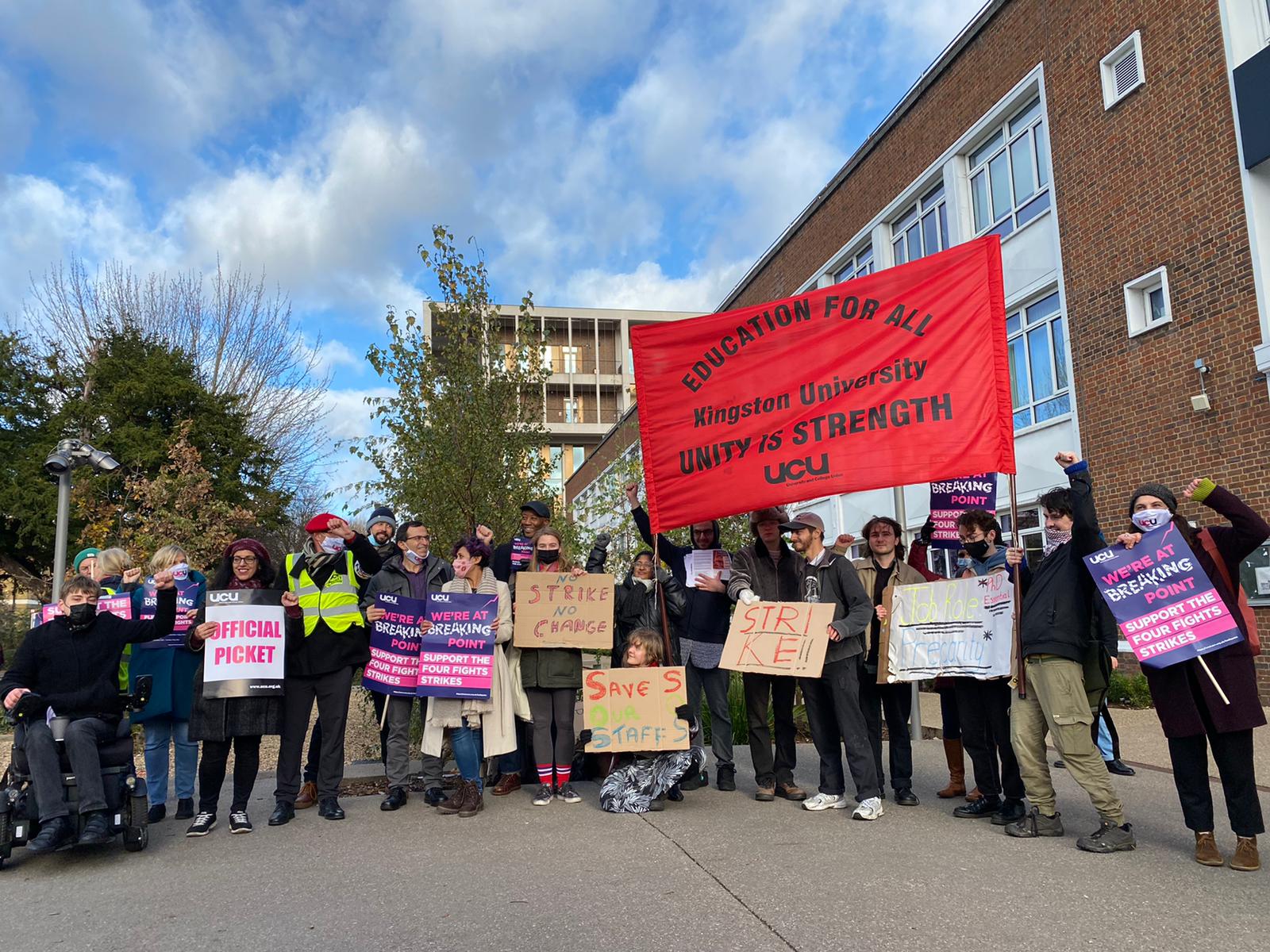Lecturers at Kingston university are set to stop working unpaid hours from December 6 until early May.
This follows three days of strike action last week which took place at 58 universities across the UK.
The dispute, dubbed the Four Fights, is over work overload, pay deflation, pay inequalities, and the casualisation of the workforce.
The action is taking place after the national lecturers union, the UCU, balloted its members in November.
“Management are operating on goodwill – on the free unpaid labour of all our lecturers”
Nick Freestone, the UCU local branch’s chair
On the working to contract action, Nick Freestone, the UCU’s local branch chair, said: “Why should that be a problem if we’re working to our contract? That is going to be a big problem because we work over our contracted hours every week through our goodwill, weekends, evenings, but we only get paid for 37 and a half hours of that.
“What is the problem should not be a problem, but it is at Kingston because all of us do many hours of unpaid labour.”
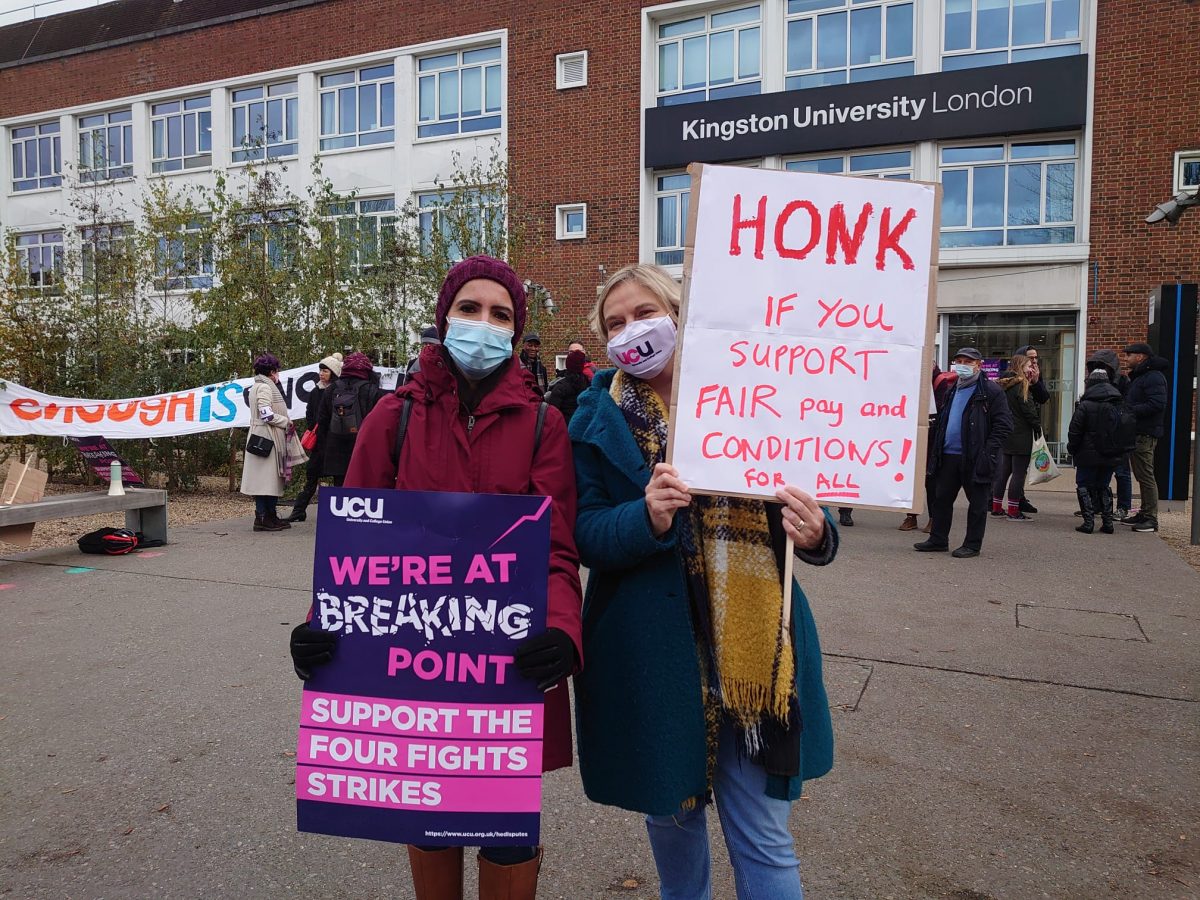
The issue of workload is also at the heart of the dispute.
Dr Layla Renshaw, the UCU’s local branch secretary said: “For me workload is the biggest factor because I have young children. I just want to have time to have a healthy family life and to bring up my kids properly.
“Things like homeschooling kids during the pandemic was incredibly stressful and managing that while fulfilling all I wanted to do for my students at the same time, that was very demanding.” said Renshaw.
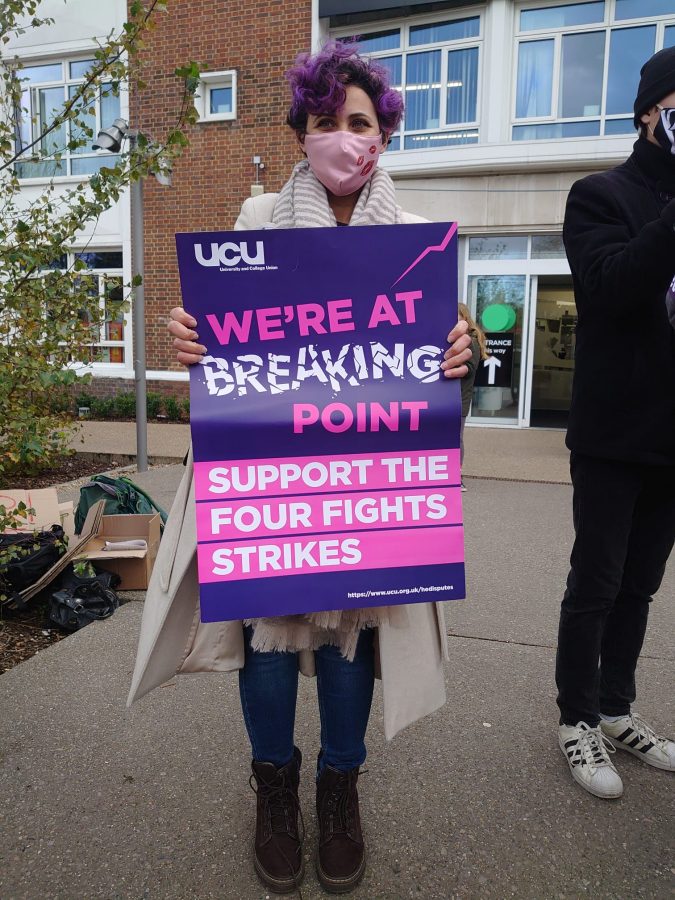
‘The 2020 pay gap data was awful’
In 2020 the median pay gaps for various groups actually increased from the 2019 figures. The publicly available data shows:
- The ethnicity pay gap rose from 25 per cent in 2019 to 33.5 per cent. BAME staff were over-represented in lower-grade positions and temporary contracts.
- In 2020 Kingston University reported a 8.7 per cent median gender pay gap, which is an increase from 5.3 per cent in 2017.
- The median disability pay is 15.2 per cent when the sector average is 8.5 per cent.
This year’s figures are currently only available internally and will be released publicly in the spring. They are thought to show that the gaps have reduced.
The head of HR at KU, Emily Boynton, “I would encourage you to have a look at the report. Pay gaps of course are quite complex. And it’s not one you solve overnight, but publication is the first step.”
Freestone said: “They haven’t publicly released the pay gap data for 2021. They tell us that it’s improved. So until we see it we can’t say. But the 2020 pay gap data was awful and horrible.”
The 2020 report also stated: “To strengthen its commitment further, the University will carry out detailed analysis on the intersection between ethnicity and gender pay. The University is confident that the measures taken this year will continue to maintain and advance the commitment to reward.”
What does the SU think?
The SU wrote a guide “to inform students on what’s going on and what might happen” regarding the UCU actions.
On November 30, the SU also organised a Q&A featuring university and UCU representatives. The goal of that event was to inform students on the impact of UCU actions on students’ performances.
Additionally, the most recent statement from Kingston student union issued on November 29 said the SU intended, amongst other things:
- To urge the senior management team at the University to put pressure on Universities UK to negotiate with UCU.
- To work with the University to ensure that they communicate with students regarding the impact on students’ academic study; e.g. recommending the postponement of deadlines where appropriate.
“As a students’ union, we believe in democratic decision-making, in trade unionism, and support UCU’s campaign for reduced casualisation, increased pay in line with inflation, a closing of the ethnicity pay-gap in HE, and a reduction in workload for their members.”
Student union statement
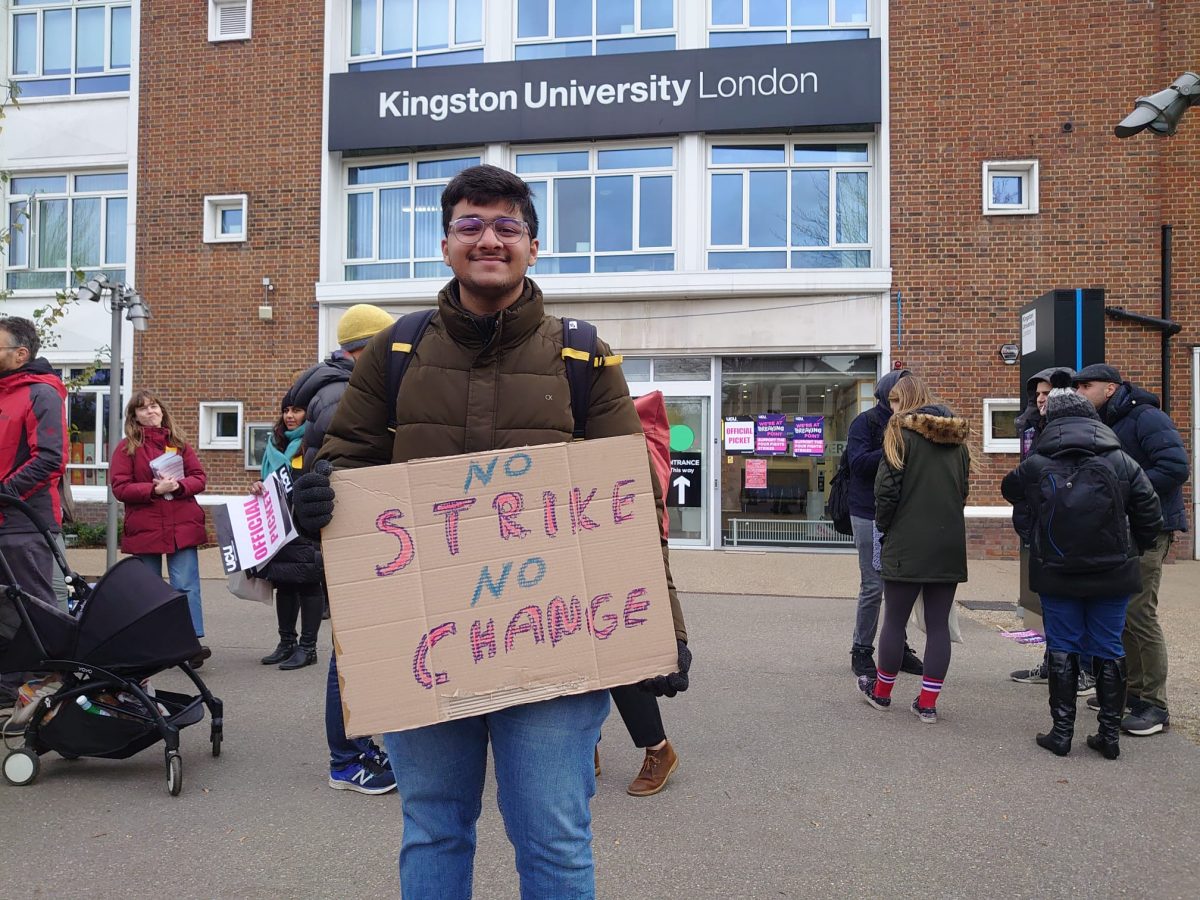
Student support for action
Some students joined the picket line in support of the strike last week.
Alya, a finance student, said: “We’re concerned because if the staff aren’t treated well, that will be reflected in their delivery. So that will affect the quality of teaching we’re getting. That’s why we’re standing here supporting them because it should be fair for them to get what they deserve for all the hard work they’re doing.”
Ward, a Palestinian student said: “Of course, that’s 100 per cent the University’s responsibility. They’ve caused this and they should fix it. They should treat lecturers better and they should take care of us at the same time. They should go easier on the mitigating circumstances, for instance.”
Ward added: “Obviously if the lecturers’ are off work that’s going to affect our studying experience. I had to pay a lot of money as an international student. I’m extra concerned because I’m not getting funding from anybody. I really need to work to pay off my student fees. I’m just wondering, where is that money going? If it’s not going to staff, what am I paying for?”
Manuel, a philosophy student, said: “There’s much more to be done so it doesn’t end here. I think that the whole point of our collective reflection among our students should be to avoid what we do not want.”
